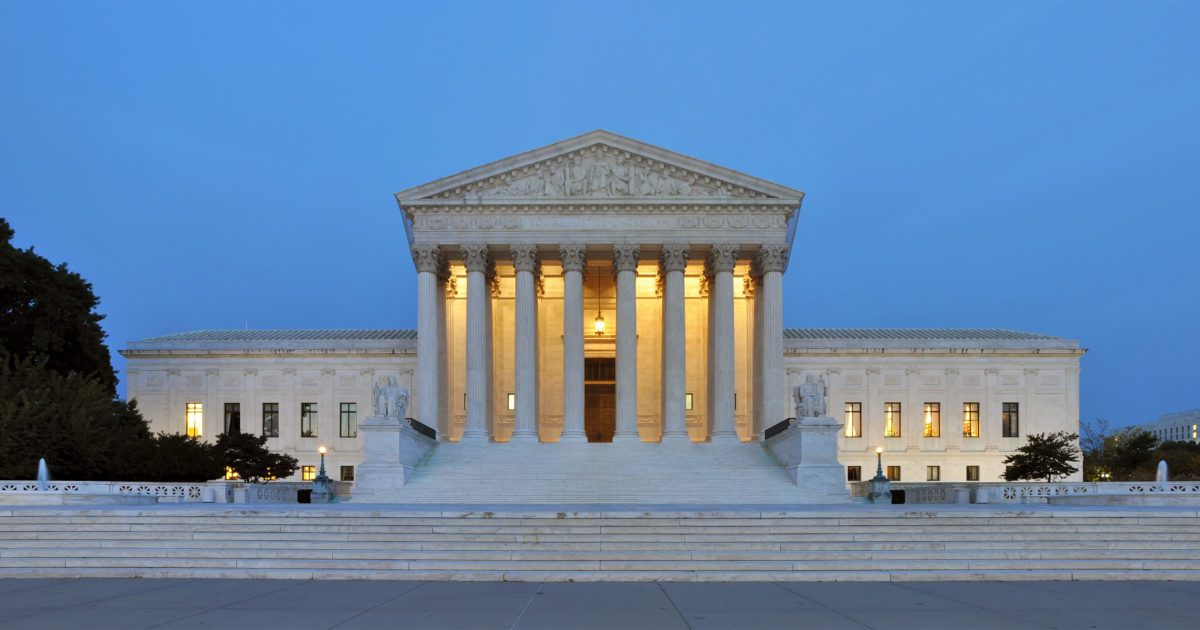The Supreme Court ruled 6-3 to strike down a Maine education program that provides tuition assistance for students to attend some private schools but excludes schools that provide religious instruction.
SCOTUS said the exclusion of religious schools is unconstitutional.
The 6-3 vote was along ideological lines, with Breyer, Sotomayor, and Kagan in dissent.
Here's the opinion from John Roberts in Carson v. Makin: https://t.co/guXt0bJwzJ. The vote is 6-3 along ideological lines, with Breyer, Sotomayor, and Kagan in dissent.
— SCOTUSblog (@SCOTUSblog) June 21, 2022
JUST IN: Supreme Court rules religious schools can get Maine tuition aid https://t.co/NnVRSohxjE pic.twitter.com/LJ5045hvWk
— 1010 WINS (@1010WINS) June 21, 2022
AP News provided further background on the case:
At the heart of the case is a Maine Department of Education rule that allows families who live in towns that don’t have public schools to receive public tuition dollars to send their children to the public or private school of their choosing. That program excludes religious schools.
Families who want to send their children to Christian schools in Bangor and Waterville sued to try to change that, but have been denied in lower federal courts. They appealed to the high court, and the Supreme Court’s order list said on Friday that it’s taking up the case.
The libertarian public interest firm Institute For Justice, which is representing the families, described the case as a “potentially landmark case” in a statement on Friday. Michael Bindas, the lead attorney in the case, said by “singling out religion — and only religion — for exclusion from its tuition assistance program,” Maine has limited the rights of the families.
“That’s unconstitutional and we’re confident that the Supreme Court is going to hold as much,” Bindas said in an interview with The Associated Press.
Maine Attorney General Aaron Frey defended the state’s rule in a statement, saying religious schools are excluded from the program “because the education they provide is not equivalent to” public education.
“Parents are free to send their children to such schools if they choose, but not with public dollars. I am confident that the Supreme Court will recognize that nothing in the Constitution requires Maine to include religious schools in its public education system,” Frey said.
The Supreme Court ruled that religious schools could not be excluded from the program that offers tuition aid for private education.
Audacy highlighted the potential impact of the case:
The most immediate effect of the court’s 6-3 decision beyond Maine will be next door in Vermont, which has a similar program.
But the outcome also could fuel a renewed push for school choice programs in some of the 18 states that have so far not directed taxpayer money to private, religious education.
Chief Justice John Roberts wrote for a conservative majority that the program violates the Constitution’s protections for religious freedoms.
“Maine’s ‘nonsectarian’ requirement for its otherwise generally available tuition assistance payments violates the Free Exercise Clause of the First Amendment. Regardless of how the benefit and restriction are described, the program operates to identify and exclude otherwise eligible schools on the basis of their religious exercise,” Roberts wrote.
The court’s three liberal justices dissented. “This Court continues to dismantle the wall of separation between church and state that the Framers fought to build,” Justice Sonia Sotomayor wrote.
CNN pundits scathed at the idea of protecting religious liberty and ending state-sponsored discrimination against religious schools.
CNN masturbation expert Jeffrey Toobin hates that the Supreme Court would protect religious liberty and end state-sponsored discrimination against religious schools.
He claims this violates the establishment clause. "That idea is breaking down under the conservative majority." pic.twitter.com/dOyOJSiK7Z— Nicholas Fondacaro (@NickFondacaro) June 21, 2022
Toobin pipes up again to decry the idea of funding students and not systems.
"That would be, many public school advocates say, a death sentence to public schools in this country," he frets. pic.twitter.com/EFbFxrfAYS— Nicholas Fondacaro (@NickFondacaro) June 21, 2022
Read the opinion from Chief Justice John Roberts in Carson v. Makin HERE.



Join the conversation!
Please share your thoughts about this article below. We value your opinions, and would love to see you add to the discussion!